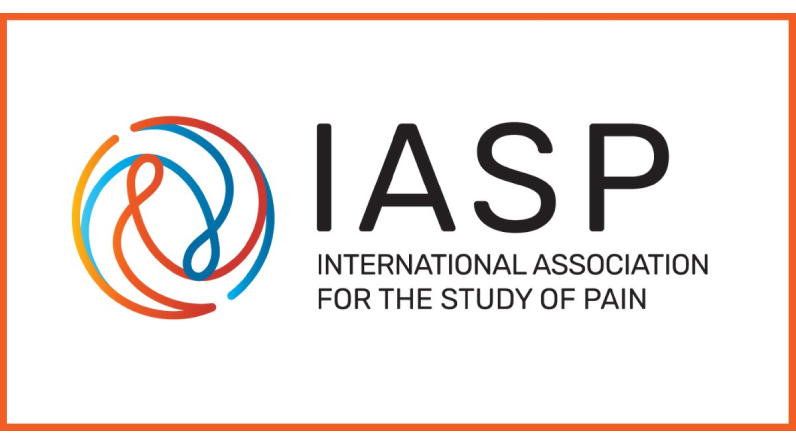For the past 15 years, I’ve worked as a clinical chaplain in healthcare, addressing patients’ physical pain, material concerns, and any potential spiritual, existential, and emotional areas of disease with a team of professionals caring for the patient’s entire family.
Despite the difficulties, there is one thing you can do, one switch you can turn on, that will make your job much simpler: believe people when they say (or show) you (in whatever way they are able) that they hurt.
That settles the matter; that’s the final word. Nothing else you do will matter as much as the trust you’ve helped establish in this relationship. And when one doesn’t have a lot of time—when the patient finds each word difficult; when the carer is exhausted; when another person in need of care is waiting, likely also hurting, in the room next door—that trust is essential to get the information one needs to help most effectively.
Even when other faculties are failing them, people have excellent genuineness radars. Time and again, I’ve found that it’s much simpler to get along with someone after I’ve established that I take their account of the world, their feelings, and their health as true, even if they didn’t expect me to walk through the door.
As you ask the necessary follow-up questions to further assess and address the reported pain, know that the answers you receive will be more honest and more helpful if you begin with the basic assumption that people’s reports of their experiences of their own bodies are true; that is, what they say about their times of hurt and occasions of relief. After all, we can’t assess a person’s degree of pain with any objective scientific method. Honestly, their report is the most reliable indicator we have.
So it’s not surprising that the phrase “purported discomfort or distress” caught my eye as I read bills currently before the General Assembly.
This icy term of cynical art is used six times in the two bills HB1 and SB1, which together propose an outright ban on providing gender-affirming care to people under the age of 18. , and were supposedly so pressing that they were the first to be filed in both chambers weeks before the start of the term.
Despite the bills’ protestations to the contrary, there are indeed professional medical standards for gender-affirming care, for those above and below the age of majority. Medical professionals and healthcare organisations all over the world have adopted these standards as their baseline for care, and health insurance providers use them when formulating reimbursement policies.
Because of Tennessee’s explicit exclusion of gender-affirming care from Medicaid coverage and the insurance options available to state employees, as well as the legal cover it has created for private insurance companies to refuse to cover such care, transgender and gender-expansive Tennesseans should not count on insurance companies covering their medical needs.
In order to understand how insurance policies have changed to accommodate transgender people, a look back at the past is helpful. My own service provider’s policies, for instance, weren’t updated since January 6 after being first drafted in May 2002, well over two decades ago.
Also Read :After a short seller attack Darktrace stock plummets
Importantly, given that both Tennessee bills reject gender-affirming care as “not consistent with professional medical standards,” it is important to note that this guidance refers back to the regularly reviewed standard-of-care recommendations issued by multiple professional medical organisations.
Paradoxically, these bills claim that gender-affirming care hasn’t been subjected to long-term review while also stating that it has “changed substantially in recent years.” As one would expect, and whether one is undergoing chemotherapy, recovering from a shoulder replacement, or receiving gender-affirming care, the science is available, and the standards have adjusted as more science has become available.
But let’s circle back to that problematic term, “purported discomfort or distress,” which trivialises people’s bodily experience even as it names it. First, the bills’ stated need to “protect the health and welfare of minors” seems to be at odds with this kind of flippant attitude.
No one can be trusted to look out for the safety of children or adults if they cannot recognise the pain of others, regardless of whether they themselves are experiencing distress. This one phrase reveals how the bill’s authors and sponsors have willingly bound themselves to outmoded, discriminatory ideas that elevate the suffering of one group while downplaying or dismissing the reports of others as exaggerated (as has been the stereotype of some ethnic groups) or from unreliable narrators (those portrayed as “unstable” or mentally ill).
Each time the phrase “purported discomfort or distress” appears in the bills, the phrase “asserted identity” appears in the very next sentence. In doing so, they reinforce their dismissal of transgender and non-binary people’s experiences of pain and discomfort as unreal, irrational, and imaginary, and thus further legitimise this bias against these communities.

Yet, it is true that pain is, first and foremost, “always a personal experience,” as the International Association for the Study of Pain (IASP) puts it, and that there is no reliable test or measure that can determine our level of pain, outside of what we ourselves describe or convey.
Therefore, “a person’s report of an experience of pain should be respected,” as stated in the IASP guidelines. All suffering is external, or “purported,” and can only be known through the actions of the person enduring it.
When people report feeling distressed, we either believe them or we don’t. What we have about them is only what they “purport,” while what they have about us is only what we report about ourselves. Therefore, the most important thing we can do to “take action to protect the health and welfare” of those under the age of majority is to listen to them and take seriously what they tell us, whether they are sad or happy. This is what they put their faith in us to accomplish, and anything less would be tantamount to telling these kids that their suffering and happiness and very existence are meaningless.
It’s a sad reflection on the state of our politics that the most controversial thing I can say is that every child in our state should be enumerated and provided for. Nothing less would do justice to the truth of their lives and experiences, their opportunity to grow into fully flourishing human beings.








